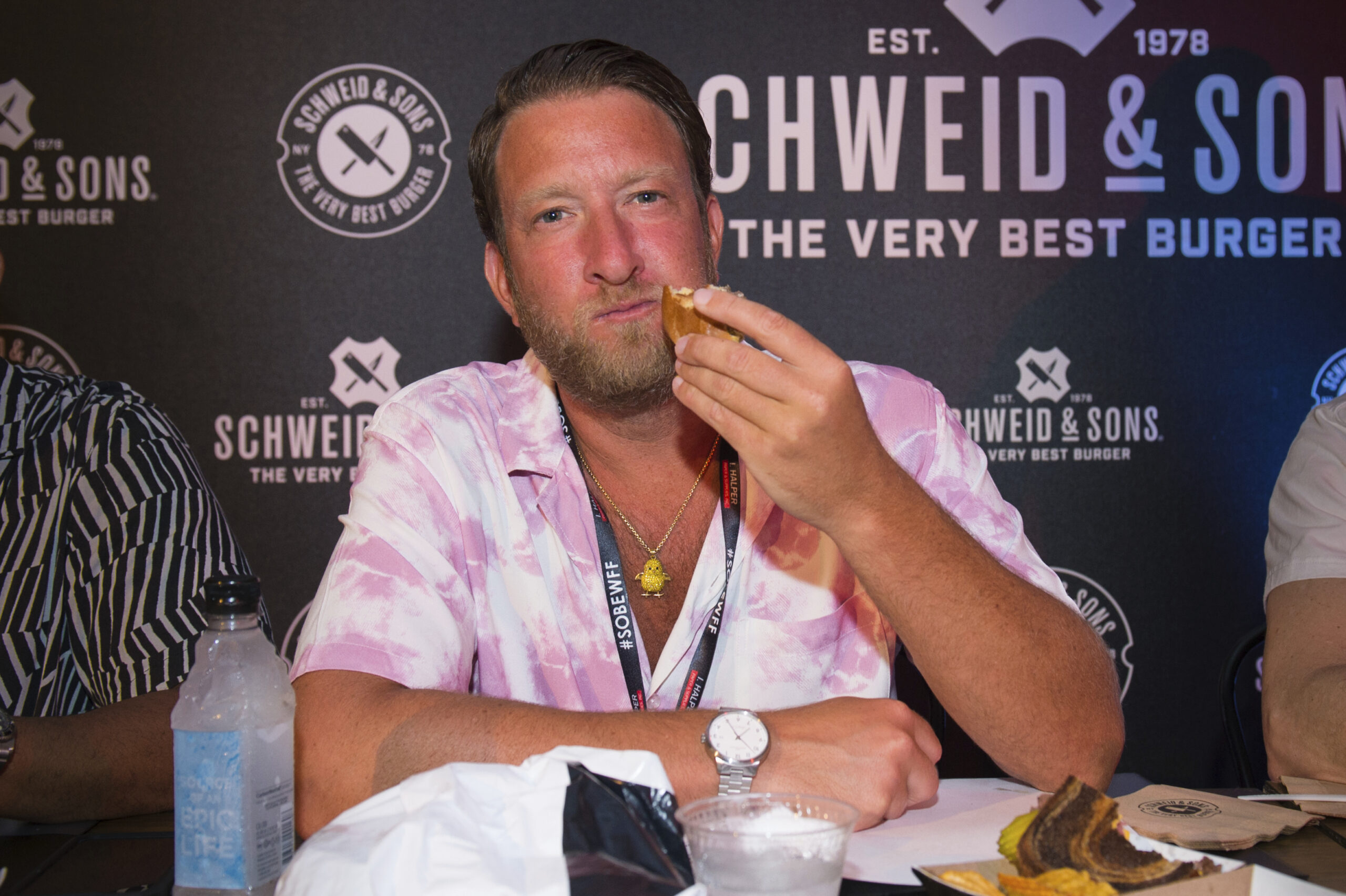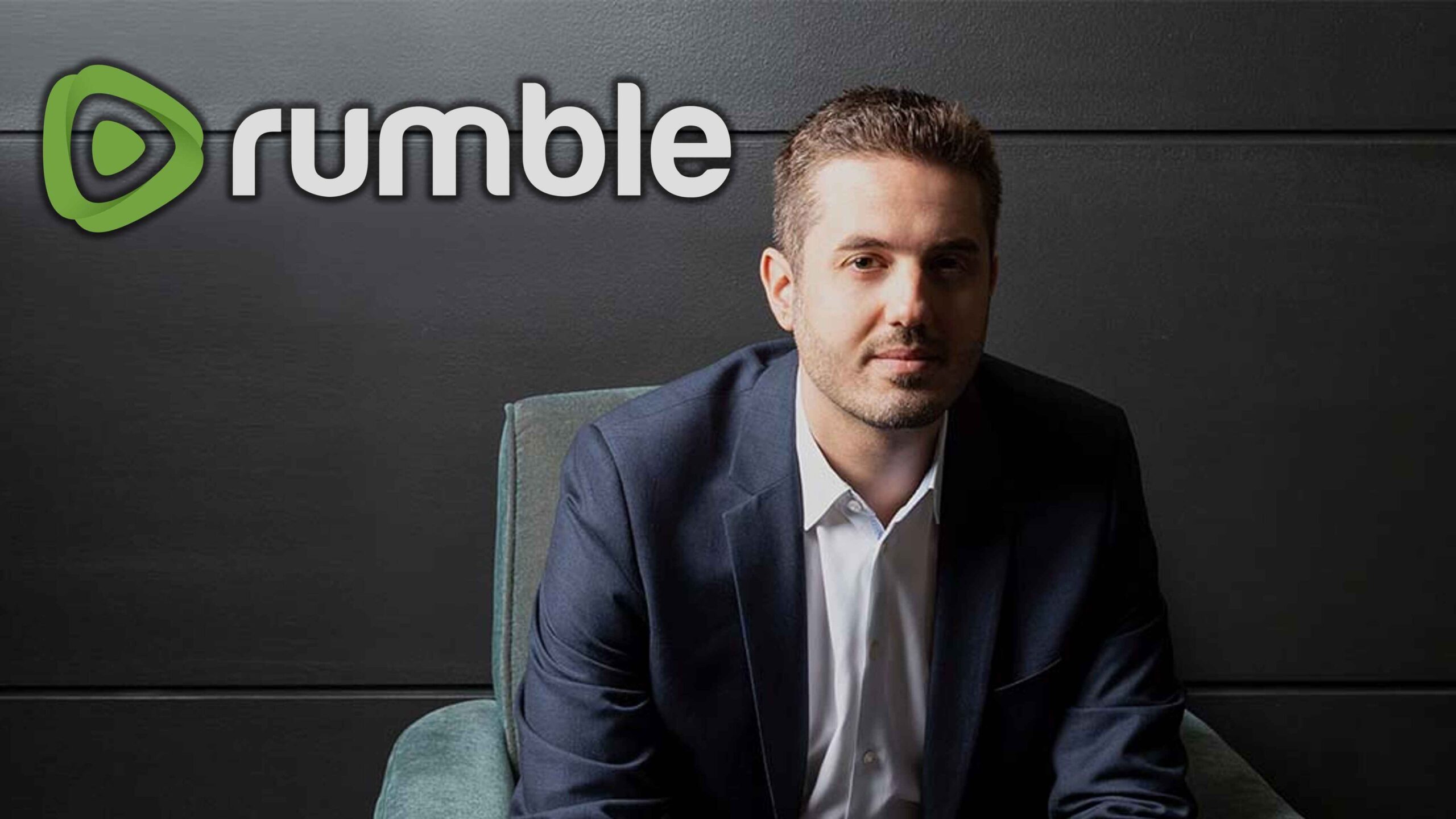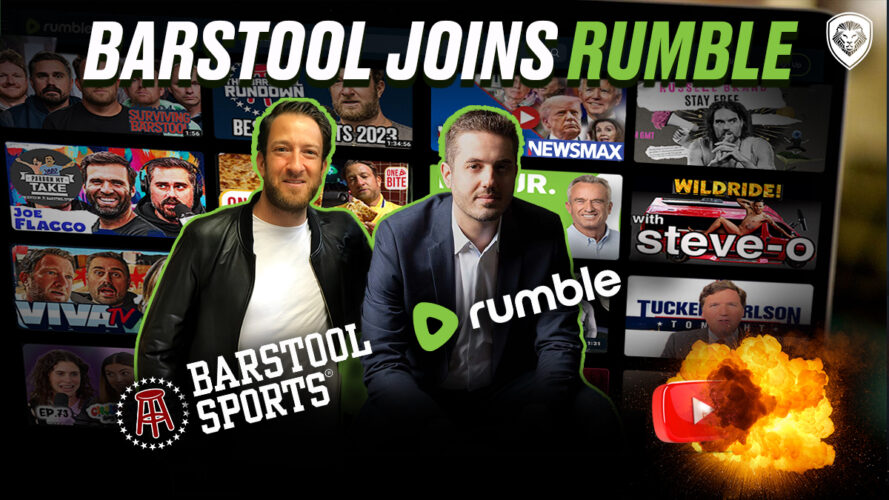In a groundbreaking media partnership, Rumble is set to become the new digital coliseum for all of Barstool Sports’ content, including livestreams, in a deal that has industry observers and fans alike abuzz with anticipation.
Dave Portnoy, the indomitable founder of Barstool Sports, highlighted the significance of the partnership, underscoring Rumble’s commitment to sports and the goal of broadening audiences.

“With the power of Barstool Sports, we are going to help Rumble be the top player in the video, cloud, and livestreaming space,” Portnoy stated.
This ambition is backed by impressive figures: Barstool Sports has witnessed a 194% growth in its audience over the past three years, a milestone that speaks to the brand’s magnetic appeal and innovative content strategy.
Moreover, Barstool Sports has achieved an astounding 1.6 billion podcast downloads and has successfully sold 5 million units of merchandise, from apparel to licensed products and accessories. The brand’s substantial reach, extending to 200 million fans across social media platforms, positions it not only as a titan of sports and entertainment content but also as a cultural phenomenon that continues to expand at a rapid pace.
Chris Pavlovski, Rumble’s chairman and CEO, echoed Portnoy’s enthusiasm, framing the partnership as a pivotal step towards fulfilling the platform’s mission of building a robust portfolio of sports and entertainment content.
“Rumble is quickly emerging as a leading platform for the under-30 demographic, and we’re excited for Barstool Sports to be a significant part of our rapid growth,” Pavlovski commented.
Learn the benefits of becoming a Valuetainment Member and subscribe today!

This partnership signifies a strategic move for Rumble, aligning with a brand that has mastered the art of engaging with the coveted younger demographic through a blend of humor, insight, and unvarnished commentary.
The collaboration extends beyond content sharing to a comprehensive advertising arrangement, with both companies working jointly to attract brand advertisers to the Rumble platform. Additionally, Barstool Sports will tap into Rumble Cloud for essential services like computing, storage, and network capabilities, a testament to the technological prowess and infrastructure that Rumble offers.
In the broader context, this partnership is set against the backdrop of Portnoy’s recent confrontation with criticism over the decision to place Surviving Barstool behind a paywall. The move to Rumble represents a strategic pivot and potential resolution to the dilemma of monetizing content while maintaining the loyalty and respect of Barstool’s fan base. It suggests a future where content can be freely accessed, yet creators are still rewarded for their efforts through innovative monetization and advertising strategies.
As digital platforms evolve, the exodus of content creators from YouTube to alternative platforms like Rumble and others is reshaping the independent media landscape. This shift underscores a critical cultural conversation about freedom of speech and the latitude for content creators to express themselves without fear of demonetization or shadow banning. YouTube’s monetization system—which often favors larger, more established channels—has been a source of frustration for smaller creators who struggle to generate revenue, leading them to seek out platforms where financial support is more accessible, such as Patreon, or where the playing field is more level, like Rumble.
As this migration accelerates, the implications for YouTube are multifaceted. With Rumble’s Monthly Active Users (MAUs) surging by 142% in a single year, and its year-over-year revenue growth outpacing that of YouTube, a trend is emerging. While YouTube still boasts a vastly larger user base and revenue stream, the gap is closing—albeit from a great distance.
This trend is not just a numeric shift but a cultural statement. As Pavlovski puts it, the platform’s aim is neutrality, refusing to discriminate against any group or individual, which may be appealing to those who feel marginalized by YouTube’s strict guidelines and algorithmic preferences.
YouTube’s challenge is not merely retaining its content creators but also maintaining its cultural relevance in an environment where the concept of free speech is becoming a decisive factor for many users. If the trend continues, YouTube could face not only a loss of diverse content but also a shift in audience demographics, as users follow creators to platforms that champion fewer restrictions and a more straightforward approach to content curation.
In the electrifying world of digital content, this may be a game-changing play. The alliance between Rumble and Barstool has the makings of a powerhouse partnership to rewrite the playbook on digital content distribution with a dynamic fusion of vision, sheer ambition, and a mutual drive to flip the script on the digital media game.
Update (3:40 PM): Chris Pavlovski confirmed on the PBD Podcast that his deal with Barstool was primarily equity-based, demonstrating the strong commitment each organization has in growing the overall market value of the other. Portnoy had acquired equity in Rumble in exchange for bringing Barstool’s content (76 shows at the current count) onto the platform.
“He didn’t come for the bag,” he said. “He came for the equity. Dave Portnoy now owns part of Rumble. The deal was structured with equity—mostly equity, with a little bit of cash. IT was entirely a bag like everyone else out there looks for. For me, that’s exciting, because he believes in this company, he believes in Rumble, he believes in the idea of creating competition in the market. And we need someone like Dave to get behind Rumble.”
(Related: Rumble Shares Shoot Up 30 Percent After Barstool Sports Joins Platform)
Pavlovski added that he has specifically been looking to recruit sports content creators, as he wants to diversify Rumble’s catalog using a good portion of the $400 million the company raised when it went public in September 2022. The biggest investments it has made in this area are Power Slap, Street League Skateboarding, Nitro Rallycross Racing, and even UFC pay-per-view in Canada.
Update (4:05 PM): Pavlovski announced on the PBD Podcast that it will be opening Rumble Studio to the public, a tool that allows creators to stream their content to any social media platform, like X or Instagram, and receive live endorsements from advertisers. He said he wants to help creators secure advertisements across platforms, and this would allow major companies to quickly and seamlessly push ads onto high-performing shows.
This is a developing story. Stay tuned for even more exciting updates.


















This is a massive move for Rumble.